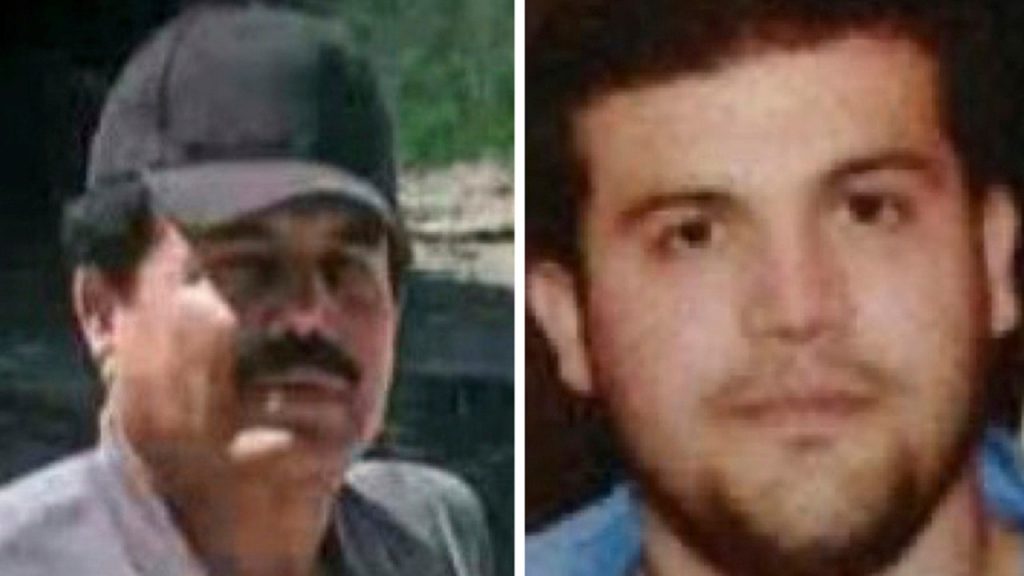Joaquin Guzman Lopez, the son of the notorious former Sinaloa cartel boss, Joaquin “El Chapo” Guzman, pleaded not guilty to federal drug trafficking charges in a Chicago federal court. The 38-year-old Guzman Lopez, who is one of the lesser-known sons in the family, was arrested in El Paso, Texas, along with Ismael “El Mayo” Zambada Garcia, the top leader and co-founder of the Sinaloa cartel. The arrests of Guzman Lopez and Zambada Garcia have sparked international intrigue, with Zambada Garcia’s lawyer alleging that Guzman Lopez kidnapped his client and forced him onto a private plane. Despite earlier reports that Guzman Lopez had surrendered to U.S. authorities, he appeared in court to enter a plea.
Zambada Garcia, along with “El Chapo”, founded the Sinaloa cartel, which has been charged in numerous cases in the U.S., including one accusing him of conspiring to manufacture and distribute fentanyl. Prosecutors have described Zambada Garcia as leading one of the most violent and powerful drug trafficking organizations in the world. With Zambada Garcia now in custody, experts believe that powerful figures in Mexico will be concerned about the possibility of him cooperating with U.S. authorities in exchange for a more favorable deal. This cooperation could potentially implicate others in collaborating with the cartels, leading to further legal repercussions.
The capture of Zambada Garcia and Guzman Lopez is seen as a significant victory in the fight against drug trafficking by U.S. law enforcement agencies. The Sinaloa cartel’s leaders had long evaded capture, but their arrests may signal a turning point in the battle against powerful drug trafficking organizations. With Zambada Garcia in custody, there is hope that he may provide valuable information to authorities, shedding light on the inner workings of the cartel and potentially leading to further arrests and dismantling of criminal networks.
The involvement of Guzman Lopez in drug trafficking, despite being a lesser-known figure in his father’s criminal empire, highlights the complexity and reach of the Sinaloa cartel. As a member of one of the most powerful drug trafficking organizations in the world, Guzman Lopez’s arrest sheds light on the family ties and hierarchies within the cartel. The use of private planes and alleged kidnapping incidents further illustrate the high-stakes nature of the drug trade and the lengths to which cartel members will go to protect their interests and secure their operations.
The impact of the arrests of key figures like Zambada Garcia and Guzman Lopez extends beyond the immediate legal consequences for the individuals involved. It also raises questions about potential cooperation between Mexican and U.S. law enforcement agencies in combating drug trafficking. The possibility of Zambada Garcia cooperating with authorities and providing information about cartel operations could have far-reaching implications for both countries, leading to further investigations and prosecutions. The arrests may also prompt other cartel members to reassess their own security measures and operations, in light of the heightened risk of capture and legal repercussions.
Overall, the recent developments in the case involving Zambada Garcia, Guzman Lopez, and the Sinaloa cartel underscore the ongoing challenges faced by law enforcement agencies in combating drug trafficking and organized crime. The arrests of these high-profile figures represent a significant step forward in the fight against powerful criminal organizations, but they also highlight the complex relationships and operations that underlie the drug trade. Moving forward, authorities will need to continue to work together across borders to disrupt and dismantle these networks, in order to stem the flow of illegal drugs and protect communities from the violence and corruption associated with the drug trade.


